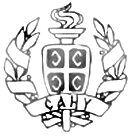Приказ основних података о документу
О логичким основама српских лингвистичких термина на -ица и –ина (од простора до језика – кретање суфикса у оквиру категорије „квантитети“)
The Logical Background Of Serbian Linguistic Terms Ending In -Ica And –Ina (From Space To Language – The Motion Of Suffixes In The “Quantities” Category)
| dc.contributor | Пипер, Предраг | |
| dc.contributor | Јовановић, Владан | |
| dc.creator | Радић, Јованка | |
| dc.date.accessioned | 2018-12-07T10:58:42Z | |
| dc.date.available | 2018-12-07T10:58:42Z | |
| dc.date.issued | 2017 | |
| dc.identifier.isbn | 978-86-7025-741-2 | |
| dc.identifier.uri | https://dais.sanu.ac.rs/123456789/4545 | |
| dc.description.abstract | У раду се с категоријалног (/ логичко-језичког) аспекта испитују лингвистички термини на -ина и -ица у српском језику, при чему се превасходно трага за начином поимања (/ менталног представљања) њима означених лингвистичких предмета. Уочава се да су термини на -ица везани за говор и јединице говора или језика, чије су основне карактеристике „линеарност“, „ограниченост“, „одређеност“, или и „засебност“. Указује се на извесну сличност тих лингвистичких предмета с предметима из других домена квантитета (простор, време, тело, број, друштво), али и са свим другим предметима који се означавају изведеницама на -ица, било да се опажају као посебна издужена тела, било као део неке целине. Супротно овом, предмете означене терминима на -ина карактерише некаква ″неодређеност″, која се, у зависности од домена, испољава као неодређеност димензија и граница, количине, броја, облика и сл., а у метафизичкој димензији језика као предметно-семантичка неодређеност (сам језик и вредности језичких облика). | sr |
| dc.description.abstract | The paper examines linguistic terms in the Serbian language ending in -ina and -ica from the categorial (/ logically linguistic) point of view, while primarily seeking to reveal the understanding (/ mental representation) of the linguistic objects designated by them. It is observed that those terms ending in -ica are associated with physical linguistic objects which are ″defined″, ″delimited″ or ″distinct″. These include (1) defined strings of letters without a corresponding sound line (bukvica, ćirilica, latinica, glagoljica, gotica, etc.), (2) segments of speech as clearly delimited sound lines (rečenica, uvodnica, zaključnica), (3) speech itself as a sound line precisely defined by the root of the derived word (ijekavica, ekavica, ikavica), (4) a word as a unit of language, i.e. parts of speech as types of distinct linguistic forms (imenica / zasebnica, zamenica), and (5) words seen as “bodies” formed in a particular way (izvedenica, složenica, pozajmljenica, skraćenica etc.). Attention is drawn to the similarities between these linguistic objects and the quantities from the domains of space, body, time, number and society (e.g. ponornica, ulica, granica; oranica, stanica; nadlaktica, zenica; sedmica ‘the number 7’, ‘a seven-day period’; porodica, sedmorica). In contrast, the objects designated by the terms ending in -ina bear a hint of ″indefiniteness″, which, depending on the domain, becomes manifest as the indefiniteness of dimensions and boundaries, quantity, number, shape, etc. while in the language it is observed as objective semantic indefiniteness, i.e. a focus on the metaphysical dimension (jednina, množina, dvojina). We interpret the presence of the suffix -ina in the linguistic term čakavština (+ kajkavština) vs. that of štokavština (taken to mean “vernaculars” within the former linguistic construct known as the Serbo-Croatian language), which correspond to the linguistic concepts of the Croatian and Serbian languages, as a sign that a language (and also a d i a l e c t / “vernacular”) is understood as a dimensionally indefinite and metaphysical object without boundaries in terms of “extent” (both structurally and spatially), whereas the presence of the suffix -ica in the terms ekavica, ijekavica and ikavica as a sign that speech is understood as a dimensionally defined (linear), realized and therefore “limited” physical object. On the other hand, the uncertainty of forms such as ekavica / ekavština and čakavština (/ colloquially čakavica) is interpreted as a reflection of what are unclear and possibly unimportant differences in the language (Fr. langue) and speech (Fr. parole). | en |
| dc.language.iso | sr | sr |
| dc.publisher | Београд : Српска академија наука и уметности | sr |
| dc.publisher | Београд : Институт за српски језик САНУ | sr |
| dc.relation | info:eu-repo/grantAgreement/MESTD/Basic Research (BR or ON)/178030/RS// | sr |
| dc.rights | openAccess | sr |
| dc.rights.uri | https://creativecommons.org/licenses/by-nc-nd/4.0/ | |
| dc.source | Словенска терминологија данас | sr |
| dc.subject | српски лингвистички термини | sr |
| dc.subject | творба речи | sr |
| dc.subject | суфикс –ина | sr |
| dc.subject | суфикс –ица | sr |
| dc.subject | категорија појмова зв. квантитети | sr |
| dc.subject | класе (/ категорије) квантитативних предмета | sr |
| dc.subject | језик | sr |
| dc.subject | говор | sr |
| dc.subject | linguistic terms in the Serbian language | sr |
| dc.subject | word-formation | sr |
| dc.subject | suffix –ina | sr |
| dc.subject | suffix –ica | sr |
| dc.subject | language (Fr. langue) | sr |
| dc.subject | speech (Fr. parole) | sr |
| dc.title | О логичким основама српских лингвистичких термина на -ица и –ина (од простора до језика – кретање суфикса у оквиру категорије „квантитети“) | sr |
| dc.title | The Logical Background Of Serbian Linguistic Terms Ending In -Ica And –Ina (From Space To Language – The Motion Of Suffixes In The “Quantities” Category) | en |
| dc.type | bookPart | sr |
| dc.rights.license | BY-NC-ND | sr |
| dcterms.abstract | Radić, Jovanka; O logičkim osnovama srpskih lingvističkih termina na -ica i –ina (od prostora do jezika – kretanje sufiksa u okviru kategorije „kvantiteti“); | |
| dc.citation.spage | 149 | |
| dc.citation.epage | 171 | |
| dc.description.other | Научни скупови / Српска академија наука и уметности ; књ. 157. Одељење језика и књижевности ; књ. 28 | sr |
| dc.type.version | publishedVersion | sr |
| dc.identifier.fulltext | https://dais.sanu.ac.rs/bitstream/id/14198/radic.o.logickim.osnovama.pdf | |
| dc.identifier.rcub | https://hdl.handle.net/21.15107/rcub_dais_4545 |

